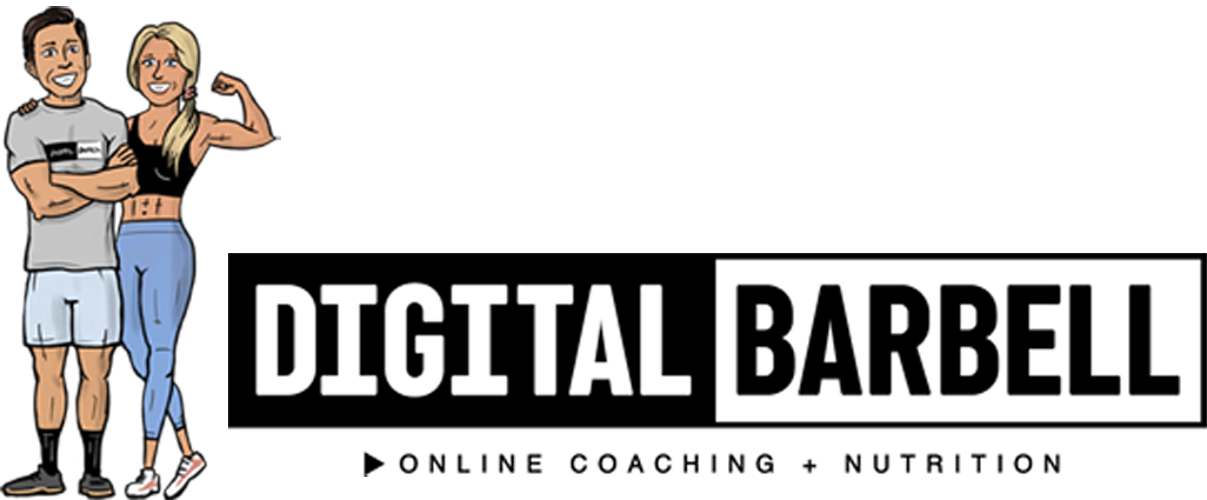How To Avoid Regaining The Weight After a Diet - Metabolism Explained
METABOLISM EXPLAINED: HOW TO AVOID REGAINING THE WEIGHT AFTER A DIET
Written by Jonathan Fletcher
Have you ever gone on a diet, lost weight, but then regained it?
If you haven’t, you’re in the minority.
Keeping the weight off isn’t easy. But there are things you can do to help beat the odds.
In this article we’ll cover:
What exactly is happening when we lose weight?
Why does it happen?
How come it happens differently for everyone?
How come formulas don’t always work for calculating how much to eat to lose fat?
Why is it so easy to regain fat after the diet ends, and how to prevent it?
By the time you finish reading this you’ll have the answers to these questions and you’ll be better prepared as you set off on your own fat loss journey.
Food hasn’t always been an easily obtained resource.
Our ancestors might have gone for days or weeks at a time without substantial food. It turns out hunting a buffalo is harder than driving through and picking up a bacon cheeseburger.
Well, since our bodies are amazingly adaptable, they have figured out ways to deal with going for long (and short) periods of time without adequate food (calories).
Essentially, we have a built in defense system that is activated to varying degrees based on how little food we eat and for how long we are deprived.
In today’s context, we are talking about a diet, done on purpose with the intent of losing weight.
By “diet”, I mean a caloric restriction that puts the body into a negative energy balance.
There are 3 main tools that your body has in it’s toolbox to defend against the effects of starvation. I say starvation, because essentially that’s what a diet is. Mild starvation. Here are those 3 main tools:
Metabolic Adaption: Much more on this later, but your body will slow down your overall metabolic rate as you diet to conserve energy (calories).
Gene Triggering: Genes in your body that help control weight regain in the presence of abundant calories are activated.
Future Weight Loss Prevention: Your body prepares itself to make future weight loss more difficult.
About Metabolism…
Let’s agree that metabolism is the bodily process of taking the food (calories) that you eat and converting it into a useable energy source that powers all that the activities your body does. This is called ATP in our case.
Every human’s metabolism is different and this is why there isn’t a one size fits all approach to nutrition.
Ever heard of a “fast” or “slow” metabolism? You know the fast metabolism type. These are the people you go to dinner with who eat their whole plate, half of yours, and seemingly never gain an ounce of body fat.
These people’s bodies are naturally inefficient at converting food to energy. Is that the opposite of what you thought? See, as these people convert calories to ATP, there is a lot of waste, like a car that gets terrible gas mileage. It gets you from point A to point B, but it costs a lot more to get there.
On the other hand, people with a slow metabolism are really good at taking in less food and still creating the energy that they need. They have efficient metabolisms. They can thank their parents for that.
Like we said before, your body has access to tools that it has developed over time to prevent you from starving. It activates these tools when we diet. They aren’t ON/OFF switches though, they’re more like dimmers.
The more you restrict your calories (both amount, time and frequency), the higher up the dimmer is pushed. THIS is why we take a gradual approach to fat loss with our clients. To minimize the triggering of these self defense systems. If you take too drastic of an approach to fat loss, you might end up in a worse situation than you started in.
Don’t misunderstand us. You can absolutely lose weight in a healthy way that minimizes the negative effects on your body. You just have to be smart about it.
Let’s talk about the first tool your body may use: Metabolic Adaptation.
We’ve talked many times about Total Daily Energy Expenditure (TDEE). This is the total number of calories that your body burns each day to do EVERYTHING that it has to do. From digesting food, to blinking, to sleeping, to lifting weights.
Your TDEE is the sum of all those things. Since our bodies try their best to maintain homeostasis, they adapt to what we do to them. When we under eat (diet), our body slows down our metabolic rate to try and prevent the effects of starvation. It tries to reduce our TDEE by reducing the number of calories we burn. One of the problems with the way that our bodies adapt is that they tend to “overshoot” their metabolic adjustments.
What we mean is that when our bodies make adaptations to our metabolism to conserve energy, they often take it too far. That stinks for the dieter because that means that the number of calories they were able to eat and still lose weight not only will decrease because of the bodies self defense system, but because their body had adjusted its caloric needs down too far.
Studies have shown that our bodies often overshoot metabolic adaptations by as much as 15%. Another thing to consider as you diet and lose weight is that you are now a smaller human that requires less food to meet your energy demands.
Hang in with us, we are almost through with Metabolic Adaptation.
When you’re in a caloric deficit, especially a large one, the thing you might notice the most is a reduction in what is called NEAT.
That stands for Non Exercise Activity Thermogenesis. This is all of the subconscious movements that you do like fidgeting, blinking and just moving around. You just feel less energetic. If you’ve ever severely restricted your calories you’ve probably noticed these changes.
Let’s talk about the changes that happen in respect to our hormones when we diet and lose fat. There are two main hormones that have to do with body fat and hunger. Leptin and ghrelin.
When we lose body fat, what's happening is a shrinking of our fat cells. As those fat cells shrink, and as we restrict calories, the secretion of leptin is suppressed. Leptin is a key hormone in regards to hunger, metabolism and fat gain/loss. It works as an appetite suppressor.
Just like our bodies often overshoot the amount that they need to reduce our metabolism while dieting, leptin is often suppressed beyond the predicted amounts.
The hormone ghrelin works in opposition to leptin. It stimulates hunger.
Remember how we talked about how as we evolved, food was not always plentiful? Well, as it were, when food is NOT plentiful, the secretion of ghrelin is increased. To you and I, that means as we lose weight and restrict calories, we're going to get hungrier.
No fair right!? It's also important to note that cortisol, a hormone important in stress is increased during times of dieting. Elevated cortisol levels can cause poor sleep, poor recovery and many other negative outcomes. It's a key reason that we monitor the stress levels of our clients each week during check in.
Let's move on to the second and third tools in your bodies toolbox to keep you from losing fat and to try and make you regain it after a diet.
As our fat cells shrink, they become more sensitive to insulin. High insulin sensitivity is actually a signal of good health, but as our fat cells shrink, they are genetically set up to re-store fat in the presence of abundant calories.
Think back to the feast or famine guy. If it has been a month since you had a hearty meal, your body would want to hang on to every last calorie of that meal in order to preserve as much energy as possible. I mean, who knows when the next meal is coming!
Along these same lines, as you diet, your body becomes more and more efficient at using the calories that you are eating. Remember, we when are dieting, it would be nice if our body wasted a lot of energy but that isn't the case unfortunately.
Also, and maybe most notably, when we end a period of dieting and start taking in a number of calories greater than our TDEE, our bodies are primed to store those calories as body fat preferentially.
YOU READ THAT RIGHT. Most of the extra calories eaten after a diet will be stored as fat vs muscle.
As the fat cells shrink, the outer layers have to be reconstructed to adjust to their new size. That's work that the body doesn't want to do. Should there be abundant calories, the body would prefer to restore fat in those cells vs. do that extra work.
Let’s think about a common example.
You work really hard to lose 20-lbs over a couple months with the goal of looking good at the beach on vacation. You get to the resort and since you've been working so hard and restricting yourself for so long, you go nuts and reward yourself with a week of indulgence.
Before you know it you have regained most of that 20-lbs, and you can see it right there on your stomach or thighs. Now you know why that happens. This is why it's important to have a plan for the diet after the diet.
A smarter approach would be to slowly return to your new maintenance calorie level (TDEE) and stay there as your body adapts with minimal fat gain. This would be a good reason to have a coach.
As we've shared before, "diets" have about a 5% success rate over 3 years. Most people who lose weight on a diet regain the weight and even more.
It should make sense to you after reading this article why this happens. Your body doesn't want to lose weight. It will lose weight if you restrict calories, but it will fight you and it will make it easier for you to regain the weight after the diet if you don't take a smart approach and if you don't have a plan for what to do after the diet.
A smarter approach to dieting is to take a gradual approach that triggers your body's self defense systems as little as possible.
Factors like a conservative caloric deficit, diet breaks and a smart macronutrient breakdown that helps you curb hunger and preserve muscle are all important things to consider.
The bottom line is, don't rush into a diet without a plan.
Be patient and do it in a way that can become a lifestyle.
If you're tired of yo-yo dieting, or are worried about how to do this on your own, we can help.
Apply for 1 on 1 nutrition coaching below.


